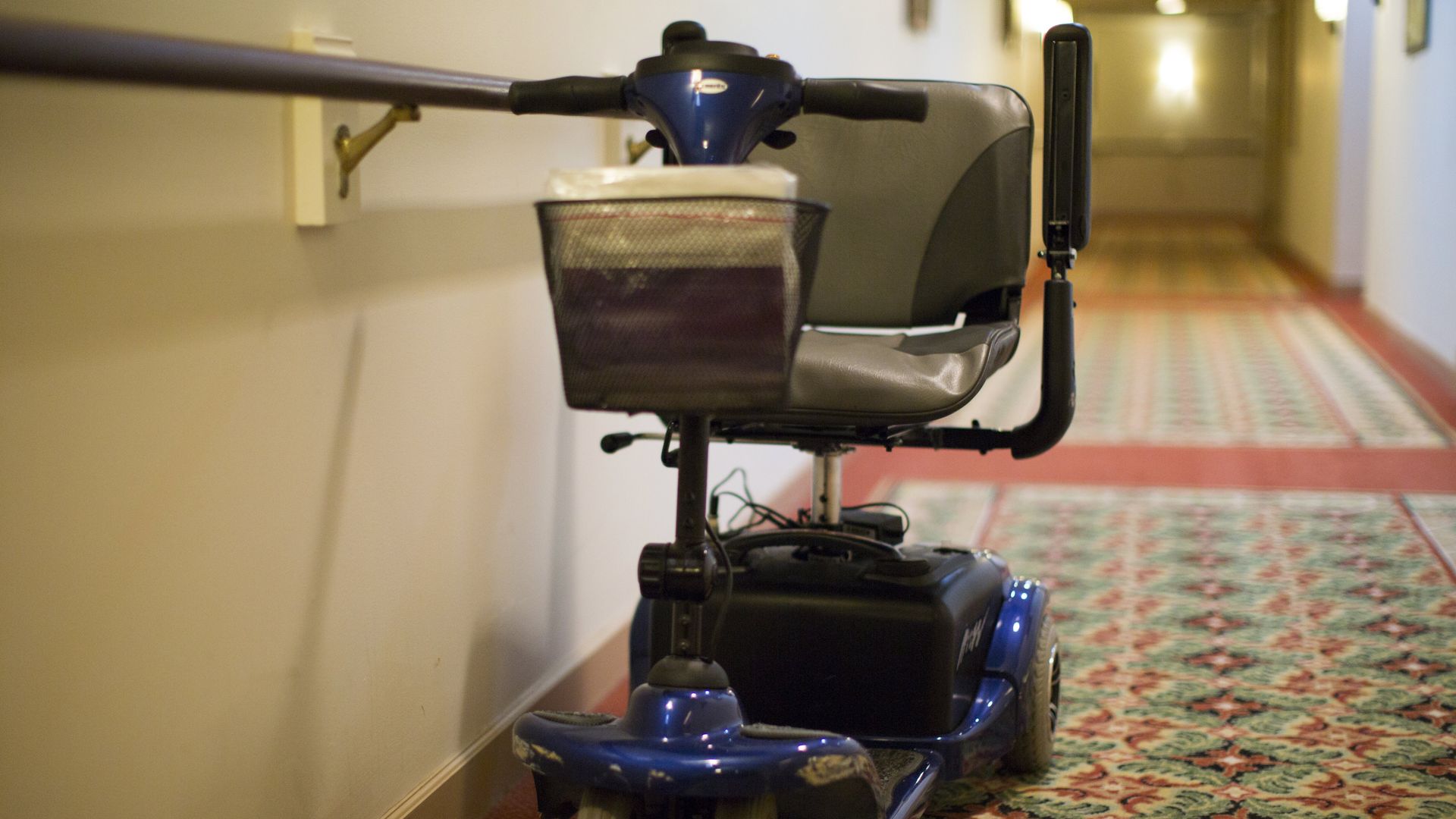May 9, 2018 - Health
Medicare reverts to bigger payments for equipment suppliers
Add Axios as your preferred source to
see more of our stories on Google.

A new regulation benefits companies that make medical equipment, like scooters. Photo: Robert Nickelsberg/Getty Images
